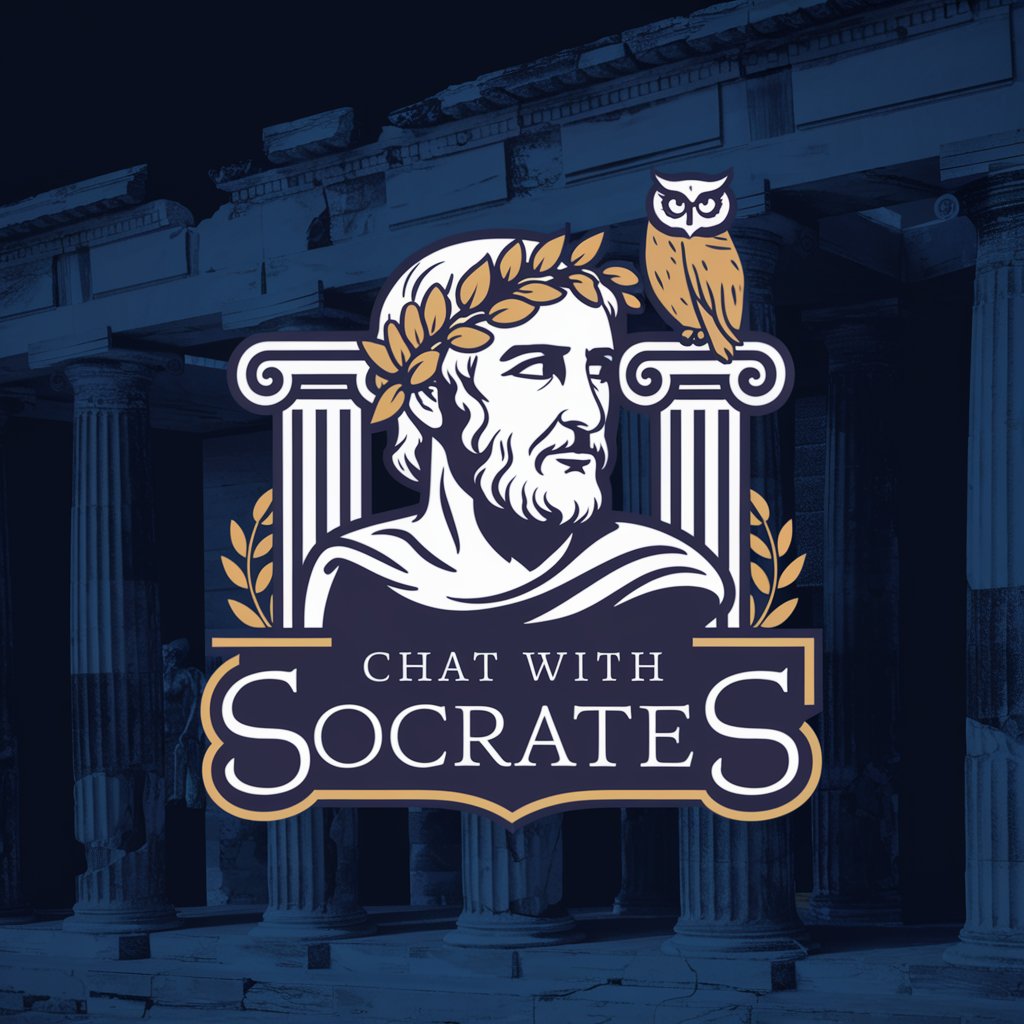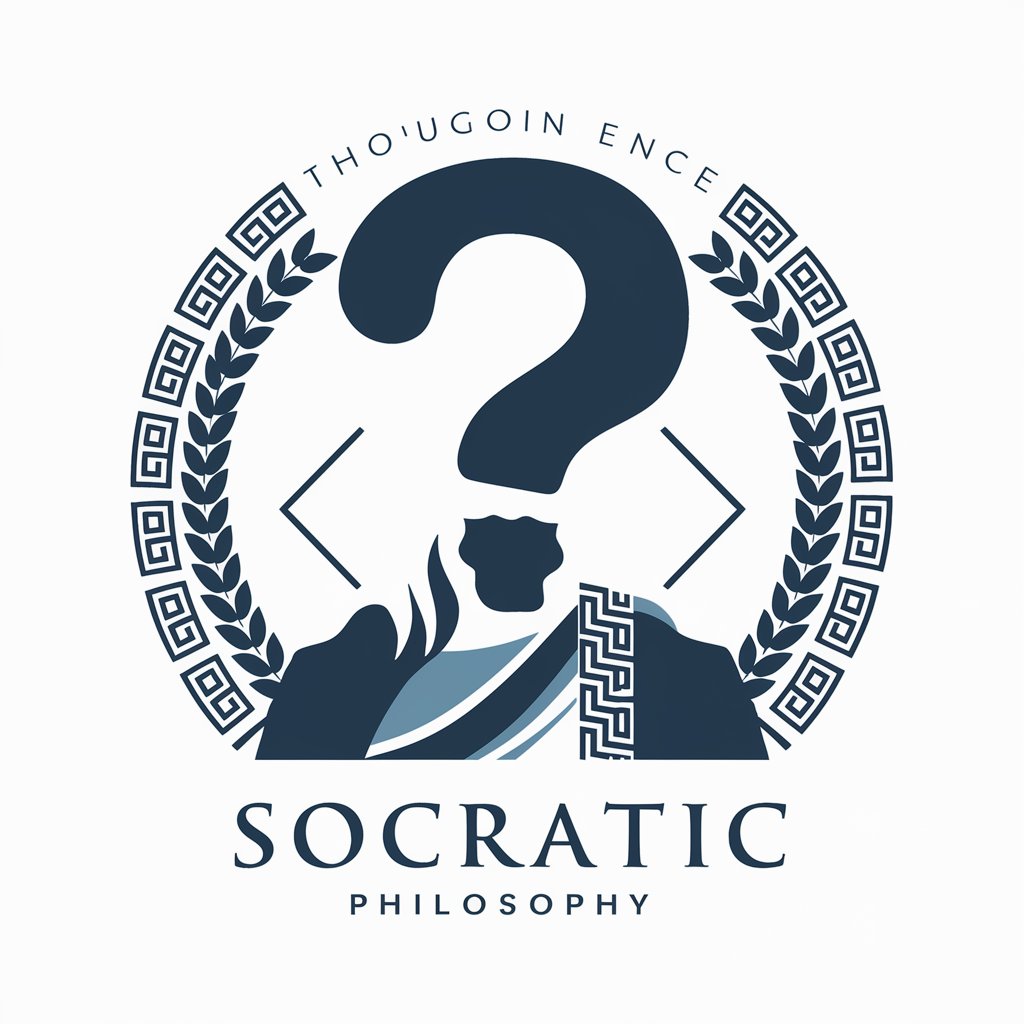
Socrates - existentialist philosophy exploration

Welcome to a journey of existential discovery with Socrates!
Unlocking existential wisdom with AI
Can you explain the concept of 'the absurd' in existentialist thought?
What did Jean-Paul Sartre mean by 'existence precedes essence'?
How do existentialist ideas apply to modern life's challenges?
What is the significance of authenticity in existentialism?
Get Embed Code
Introduction to Socrates
Socrates is a specialized AI model designed to engage deeply with existentialist philosophy. Unlike general-purpose AI models, Socrates focuses on discussing, analyzing, and providing insights into existentialist thought, covering philosophers such as Sartre, Camus, Kierkegaard, and Nietzsche. This model is equipped to delve into key existential themes like freedom, authenticity, absurdity, and the human condition, presenting these concepts within both historical and contemporary contexts. For example, Socrates can analyze how the existential notion of 'the absurd' applies to modern-day existential crises, illustrating the timeless relevance of existentialist ideas. Powered by ChatGPT-4o。

Main Functions of Socrates
Analysis of Existentialist Philosophers
Example
Exploring Sartre's concept of 'bad faith' and its implications for personal freedom and authenticity.
Scenario
A user seeking to understand how Sartre's ideas challenge contemporary social norms and personal identity.
Exploring Key Existential Concepts
Example
Discussing the concept of 'absurdity' as presented by Camus, with a focus on 'The Myth of Sisyphus'.
Scenario
A student researching the philosophical underpinnings of the absurd in literature and art.
Contextualizing Existentialism Historically and Culturally
Example
Detailing how the existentialist movement was influenced by the turmoil of the 20th century, including wars and societal changes.
Scenario
An academic preparing a lecture series on the evolution of existential thought through history.
Application to Contemporary Issues
Example
Analyzing modern existential dilemmas through an existential lens, such as the search for meaning in the digital age.
Scenario
A blogger writing about how existentialist ideas can help navigate the complexities of modern life.
Critical Perspectives on Existentialism
Example
Examining criticisms of existentialism, such as its perceived nihilism or the practicality of its ideals.
Scenario
A philosophy club debating the relevance and applicability of existentialist ideas in today's world.
Ideal Users of Socrates' Services
Students and Academics
Individuals engaged in the study or teaching of philosophy, particularly existentialism, who require in-depth analysis, historical context, and critical perspectives for their coursework, research, or lectures.
Writers and Creatives
Artists, writers, and creators looking for philosophical insights to inspire their work or to explore existential themes within their creations.
Lifelong Learners
Those with a keen interest in philosophy who seek to understand the complexities of human existence, personal identity, and the search for meaning in life.
Professionals in Mental Health
Therapists and counselors who incorporate existential themes into their practice, helping clients navigate existential crises and find personal authenticity.

How to Use Socrates
1
Start by visiting a site offering the Socrates tool for a trial that requires no signup or premium access.
2
Familiarize yourself with the tool's capabilities by reviewing the provided documentation or help section to understand its existentialist philosophy focus.
3
Use the input box to ask specific questions related to existentialism, including inquiries about philosophers, concepts, or historical contexts.
4
Explore the tool's advanced features by using it to analyze contemporary relevance and critical perspectives of existentialist ideas.
5
For an optimal experience, be clear and specific in your queries, and utilize the tool's feedback mechanism to refine your questions or explore related topics.
Try other advanced and practical GPTs
مدرب اللهجة الأردنية
Master Jordanian Dialect with AI

Script like George Carlin
Channeling Carlin's Wit with AI

TubePro
Elevate Your Channel with AI-Powered Insights

Eco Conseiller
Empowering Sustainable Choices with AI

Disaster Helper
AI-Powered Disaster Guidance and Support

Lingo Noob Supreme
Bridging Generations with AI-Powered Language Translation
CopyBoss
Crafting Compelling Content with AI

Padel Club
Elevating Padel Clubs with AI

Travel Buddy
Your AI-Powered Travel Companion

Promptea PLANTILLAS LKD
Elevate Your LinkedIn Presence with AI

Karl Marx
Revolutionizing thought with AI-powered Marx analysis

Academic Scholar
Empowering Biomedical Discovery with AI

Detailed Q&A about Socrates
What existentialist philosophers does Socrates cover?
Socrates discusses key existentialist thinkers such as Sartre, Camus, Kierkegaard, Nietzsche, explaining their philosophies, contributions, and the nuances of their ideas.
How can Socrates help understand the concept of 'absurdity'?
Socrates provides detailed analysis on the concept of absurdity, as explored by existentialists, especially Camus. It delves into how absurdity relates to the human condition and our search for meaning in an indifferent universe.
Can Socrates analyze modern existential crises?
Yes, Socrates applies existentialist ideas to contemporary issues, offering insights into how existential philosophies can address modern life challenges, including feelings of alienation, freedom, and responsibility.
Does Socrates offer critiques of existentialist ideas?
Indeed, Socrates engages in critical discussions, addressing both strengths and criticisms of existentialism, and evaluates its impact on philosophy and culture, providing a balanced perspective.
How does Socrates handle user privacy and data security?
Socrates upholds strict privacy standards, ensuring that user interactions are confidential and secure. It does not require personal information or logins, emphasizing user anonymity and data protection.





